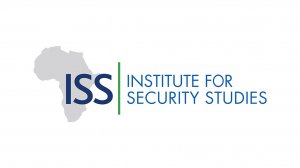The Russian military company Wagner appears to have been renamed the Africa Corps by Moscow, and brought under the control of Russia’s Defence Ministry. What does the government takeover of the company mean for security in Africa?
Russia’s economic, diplomatic and military interests in Africa have been increasing in the past few years. And while Russia-Africa summits enable the country to wield diplomatic support, Moscow understands this charm offensive isn’t enough to compete with its big power rivals – the United States (US) and China.
Since 2017, Russia has used Wagner as a low-cost strategy to increase its foothold in Africa. One focus for Wagner operations was the Sahel – a mineral-rich region rife with violent extremism, localised conflicts and military coups; and more recently, a battleground between global powers.
Recent military coups in the Sahel belt soured relations between some Sahelian states and the West. Taking advantage of the situation, the Kremlin has endeared itself to Mali and Burkina Faso’s military juntas.
Wagner’s former leader Yevgeny Prigozhin was Russia’s main man in Africa. A month before he died in a plane crash on 23 August 2023, Prigozhin was spotted at the Russia-Africa summit in St Petersburg – indicating Moscow’s use of the mercenary group for its military influence in Africa.
After his death, there were questions about Wagner’s future and its presence in Africa. Wagner had morphed into a unique entity under the leadership of Prigozhin and Dmitry Utkin (who died in the same plane crash). It had spread its operations to the Middle East (Syria), Latin America (Venezuela), and Africa (Central African Republic, Mali, Sudan, Libya, Mozambique, and Madagascar).
The Kremlin maintained a policy of deliberate ambiguity, refusing to admit its association with Wagner. But after Prigozhin’s death, President Vladimir Putin admitted his government had funded the paramilitary group.
Russia’s move to create the Africa Corps can be analysed from two possibly overlapping perspectives. First, by controlling Africa Corps, Moscow could be trying to avoid past mistakes. Wagner’s autonomy and power led to a supremacy battle between Prigozhin and senior Russian defence officials, which boiled over in an unsuccessful insurrection that saw Wagner soldiers marching on Moscow in June 2023.
Second, aligning Africa Corps’ operations with Russia’s foreign policy, security interests and international commitments could be part of the country’s long-term military strategy in Africa. As a unit reporting to the Defence Ministry, Africa Corps could theoretically be held accountable by Russia for violations committed during military operations. Recurring allegations of atrocities in Central and Northern Mali have tarnished Russia’s reputation over the years.
The Kremlin has shown interest in filling the vacuum left by France and its Western allies in the Sahel following the recent military coups. Antipathy towards France and the West has seemingly been among the drivers of the military coups, so Russia sees the Sahel as a region ripe to expert its foothold using the Africa Corps.
Meanwhile, Sahelian states that have experienced coups in the past few years have all shown great admiration for Moscow. Putin met and held talks with Burkina Faso’s interim leader Ibrahim Traoré during the July 2023 Russia-Africa summit. Russia’s Deputy Defence Minister Yunus-bek Yevkurov visited Libya in August and Niger in December, before travelling to Mali. On 24 January 2024, Putin met Mahamat Idriss Déby, Chad’s military leader who took power in a 2021 soft coup.
On the same day, Africa Corps’ operations first appeared on a Telegram channel covering the arrival of a 100-strong Russian contingent in Ouagadougou, capital of Burkina Faso. The troops were there to protect Traoré from apparent terrorist threats.
Even before this public report, Africa Corps had apparently begun to subsume Wagner’s operations in the Sahel and beyond, re-engaging with countries where Wagner had contracts. Mali, Libya and Burkina Faso have already signed agreements with the Russian Defence Ministry, and CAR is currently negotiating with Russia’s government to build a military base.
In September 2023, Burkina Faso, Mali and Niger announced they had formed the Alliance of Sahel States. This was in response to the threat of an Economic Community of West African States (ECOWAS) intervention following Niger’s 26 July military coup. In late January this year, the three states announced their withdrawal from ECOWAS.
Although Russia’s role in their withdrawal is unclear, European Union foreign policy chief Josep Borrell hinted at Russia’s involvement: ‘It is very significant that these three states, all of them with military dictatorships, decided to leave the regional body ... at the same time that we see the Russian influence increase.’ Borrell said these developments created a ‘new geopolitical configuration’ in the Sahel.
Now that Burkina Faso, Mali and Niger have exited ECOWAS and formed the Alliance of Sahel States, Russia – through the Africa Corps – will likely present itself as a security ally and guarantor for the three states. How this plays out for each of the countries may differ. Niger’s continued commitment to security cooperation with the US, notably through its drone base in Agadez, makes this prospect unlikely in the short term.
Nevertheless, following Déby’s January trip to meet Putin in Moscow, Russia may try to expand its influence in the region by bringing Chad – which still has close relations with France – closer to the Burkina Faso-Mali-Niger triad.
The rebranded Africa Corps allows Russia to expand its influence on the continent through direct state means. With continued instability in the Sahel and the ECOWAS exits, Russia will likely be an attractive security ally. While Africa Corps appears to be the sharp end of Russia’s security strategy in the turbulent Sahel region, its long-term goal will undoubtedly be to expand its influence across Africa.
Written by Nicodemus Minde, Researcher, East Africa Peace and Security Governance, ISS Nairobi
EMAIL THIS ARTICLE SAVE THIS ARTICLE ARTICLE ENQUIRY
To subscribe email subscriptions@creamermedia.co.za or click here
To advertise email advertising@creamermedia.co.za or click here











